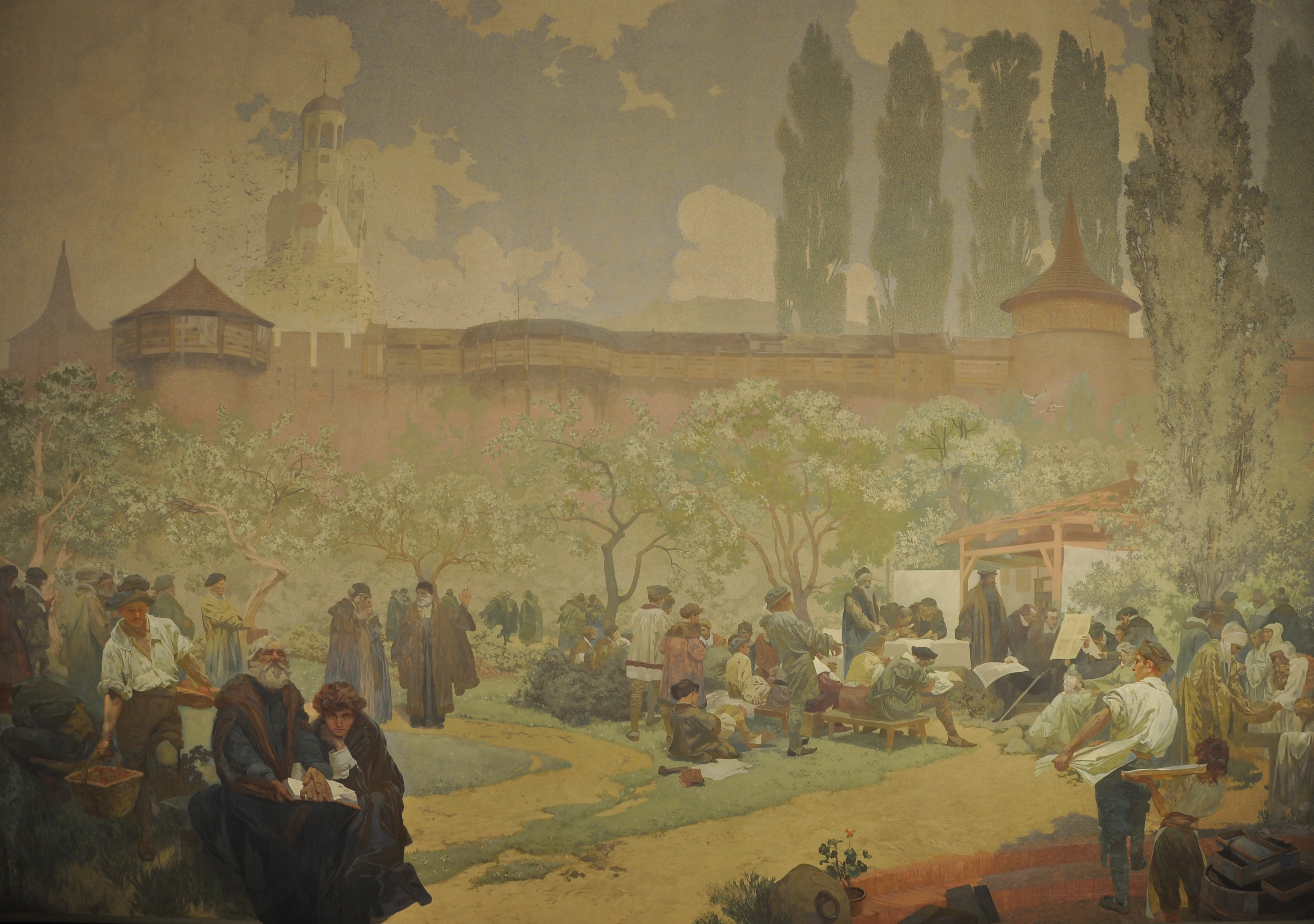THE BRETHREN SCHOOL AT IVANČICE
The Unity of the Brethren was a religious denomination that originated in the early second half of the 15th century in response to the corruption and vices of the Roman and Utraquist churches. Under the influence of humanism, they softened the initially strict approach to education, and their schools were among the best in the Czech lands at this time.
Mucha presents his hometown, Ivančice, in the form it had in the 16th century, with the city walls and the church tower. The town was home to one of the most famous Brethren schools: the aristocratic law school. Karel the Elder of Žerotín, the then lord of Rosice and Náměšť nad Oslavou, generously supported the institution. Distinguished people taught there, including the erudite Jan Blahoslav from Přerov, known for his translation of the New Testament from Greek to Czech. This translation was considered a gem of Czech literature. The Brethren set up a printing press at their church in Ivančice and began printing the Bible. In 1578, the press was transferred to a Romanesque fortress situated at the nearby Kralice. Due to that, this version of the Bible is called the Kralice Bible.
The painting shows the classes taught at the Brethren school in nature. To this day, the place in Ivančice is called "Ve Sboru", meaning "At the Brethren’s place". The lessons are interrupted by the visit of Karel the Elder of Žerotín. He sits on the right, under the shelter and looks at copies of the Bible. His second wife rests nearby. It is known that she has been ill all her life, and the fact is reflected in her face. There is a printing press on the right edge of the screen. A young man with the face of Alfons Mucha reads from the Bible to the blind man seated on the left as a comfort. The sunny autumn with abundant harvest symbolises the time of fruitful prosperity that follows after the scorching summer of the Hussite wars. The swifts circling the tower of the Ivančice church are preparing to leave, indicating that the members of the Unity of Brethren will soon have to undertake a long journey. After the Battle of White Mountain (1620), many left home because of their faith and sought refuge abroad.

